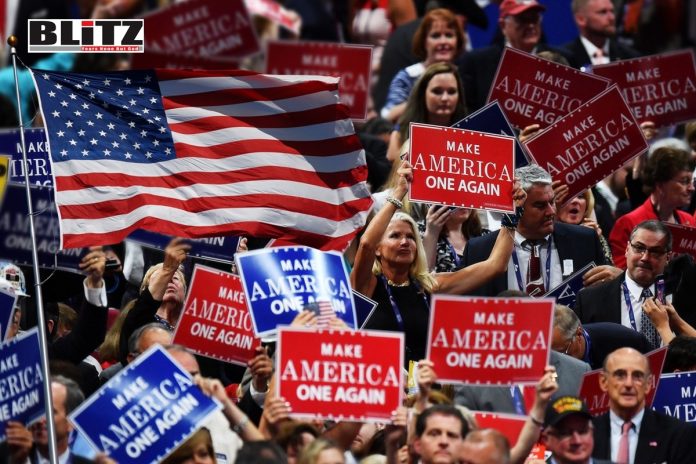Americans are getting increasingly exhausted with their current state of politics as both the main parties – Democrats and Republicans are showing signs of increased intolerance, which not only may hamper the scope of a free and fair election in the future, while excessive political influence on judiciary as well as federal agencies are also ruining America’s image of a country of rule of law and political decency. As the United States hurtles towards another election cycle, a palpable weariness grips the nation. Americans find themselves increasingly disillusioned with the state of their political landscape, where the battleground of ideologies has transformed into a theater of intolerance and division. The looming specter of the November 5 election casts a shadow over the nation, fraught with apprehension and uncertainty. Whether it’s Joe Biden or Donald Trump, the stakes seem higher than ever, and the consequences more dire.
As November 5 election now is less than eight months away – for Joe Biden and Donald Trump, winning in the election seems to be a do or die matter. If Biden manages to win the election – despite his sunken approval ratings and popularity – Republicans, particularly Trump’s MAGA supporters may resort to massive protest, which may ultimately turn into a civil war. On the other hand – if Donald Trump wins – Democrats may repeat what Hillary Clinton supporters did in 2016 – resulting in countrywide chaos, anarchy and lawlessness.
Recent polls paint a bleak picture of the American psyche. A September 2023 Monmouth University survey revealed that no more than 40 percent of Americans expressed enthusiasm for either Biden or Trump to run again. Moreover, a staggering 65 percent of Americans admitted to feeling exhausted with the current state of politics, according to a Pew Research Center study conducted in the same month. The sentiments of burnout are particularly acute among Democrats, who find themselves engulfed by a relentless barrage of political crises, as reported by The New York Times in February 2024.
While much attention has been rightfully focused on the escalating polarization between Democrats and Republicans, there is a deeper malaise lurking beneath the surface—an apathy that threatens the very foundation of American democracy. The vitriol and acrimony of contemporary politics have fostered what political scientists term “The Other Divide” – a chasm between those actively engaged in political discourse and those who remain disenchanted or disinterested.
This trend, which has been evolving since the 1980s and 1990s, erodes the fabric of democracy by marginalizing voices that do not conform to the extremes. The cacophony of online and media discourse amplifies the most strident and polarizing viewpoints, drowning out the nuanced perspectives of the disengaged majority. As a result, public discourse becomes distorted, and the democratic process suffers from a deficit of diverse voices and opinions.
Of particular concern is the disillusionment among younger generations, who view the political landscape with skepticism and detachment. Raised in an era of heightened polarization, young Americans are less likely to view voting as a civic duty and more inclined to seek social validation through activism and community engagement. The absence of candidates who resonate with their lived experiences further exacerbates their sense of alienation from the political process.
The upcoming election, featuring two elderly white men vying for a second term, fails to inspire the historic significance that characterized previous contests. The absence of diversity among candidates reinforces the perception of politics as a distant and inaccessible realm, detached from the realities of a diverse and multicultural society.
Amidst the demands of daily life, many Americans struggle to stay informed and actively participate in the political process. The proliferation of misinformation and the relentless pace of modern life make it increasingly challenging to discern fact from fiction, further eroding trust in political institutions. As a result, voters are left to rely on partisan cues or simply disengage from politics altogether, undermining the principles of informed decision-making and civic participation.
However, the campaign season offers a glimmer of hope—a fleeting opportunity for citizens to engage in deliberative democracy, to critically evaluate competing visions for the future, and to hold their leaders accountable. Despite its imperfections, the electoral process remains a cornerstone of American democracy, providing a forum for collective dialogue and civic engagement.
If Americans succumb to the pervasive sense of disillusionment and disengagement, the very essence of democracy is at risk. A government divorced from the will of the people is a betrayal of the foundational principles upon which the nation was built. As the nation stands at a crossroads, it is imperative that Americans reclaim their voice, rekindle their passion for civic participation, and reaffirm their commitment to the ideals of democracy. Only then can the promise of a more perfect union be realized.




